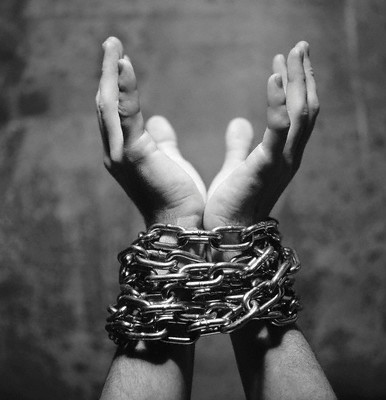This is a difficult question to answer due to the complexity of the problem. There are four types of human trafficking:
· For forced labour
· For sexual exploitation
· For domestic servitude
· For organ harvesting

While there are plenty of legal instruments that can be used to maintain international standards, European standards and the legislative framework in the UK/Northern Ireland the problem is in obtaining the evidence, as often, victims are unable, or unwilling to co-operate. Also the issue of consent is problematic. The nature of this contemporary slavery in UK and elsewhere in the world is such that 80 percent are women and girls, often of migrant background, and unable to speak much English.
On arrival at their destination trafficked people are controlled by violence and economically exploited. Their passports and papers are taken from them so they cannot escape. Unless they are rescued they have no means of freedom. Their crime bosses tell them that if they report to the police they will be deported back to their home country as they are illegally in the country of destination. The fear of deportation and the shame or rejection by their families at home is very real. Often these trafficked victims are taken into slavery by force or fraud, thinking they were going to be given decent employment by the unlicensed gang masters. They also have ‘to work’ until they have paid back the cost of their fare from their homeland and usually their bosses takes up to 50 percent of their earnings so they gain little money.
On a global scale sex trafficking is arguably the third most lucrative illicit business in the world after guns and drugs. Trafficking is a $32 billion annual industry. So it is the exploitation and theft of vulnerable lives and work that often feeds into the global economy and the things we buy.
In 2007, 2.45 million trafficking victims were in exploitative conditions- probably much greater numbers now.
In Northern Ireland last year there were twenty seven victims recovered but as yet there has only been one conviction of the criminals involved in these cases. Rescuing/supporting the victims and ensuring that those who organise and profit from this evil trade are consistently brought to justice remains a great challenge to our society.
These are the scratch marks on the inside of the locked room where a trafficked victim was forced to live and work for the most of 24 hours each day per week. Surely an outrage!

Helena Daly rsm
Northern Province


